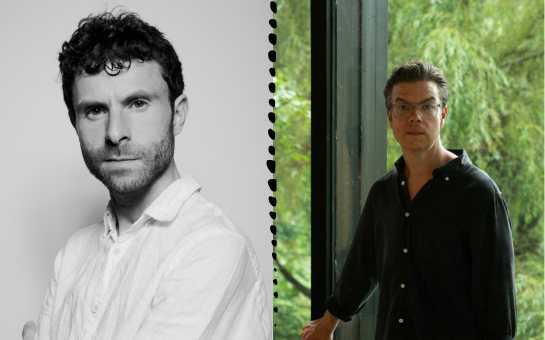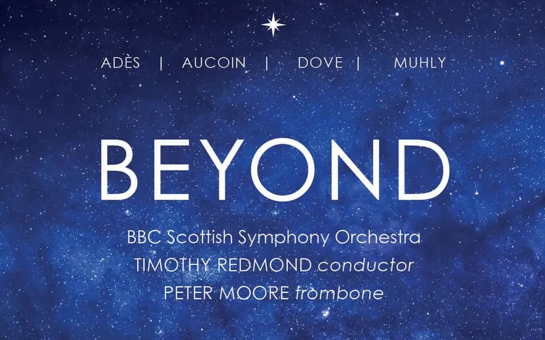On April 20, DACAMERA and The Shepherd School of Music at Rice University jointly present the world premiere of Music for New Bodies, a new dramatic work from composer, conductor, and MacArthur Fellow Matthew Aucoin. The first collaboration between Aucoin and legendary director Peter Sellars, Music for New Bodies is commissioned by DACAMERA, the Shepherd School of Music at Rice University, American Modern Opera Company (AMOC), LA Opera, and Aspen Music Festival and School, where it will be performed this summer.
Music for New Bodies is scored for five voices and large ensemble. It is inspired by the visionary poetry of Jorie Graham, addressing some of the most urgent questions of our time: In our quest for immortality, what have human beings done to the planet, and what are we doing to ourselves? What are these post-human, machine-generated intelligences that we so heedlessly continue to create, and which seem almost capable of replacing us? Music for New Bodies is a 360-degree portrait of the moment we are living in, a piece that brings together questions of environmental responsibility, scientific progress, and the ethics of humanity’s questionable quest to surpass the human.
"Throughout the composition of Music for New Bodies, I worked with my dear friend and collaborator Peter Sellars, who will direct a full production of the piece in the future," writes Aucoin. "Peter and I consulted regularly about the work's structure and dramaturgy over the past two years, and I can't imagine having brought this piece to fruition without the strong doses of psychic adrenaline that conversations with Peter inevitably provide."
Jorie Graham's texts take the viewpoint of a woman who is undergoing intensive cancer treatment. Rather than assuming fixed roles, the five singers may be understood to be five individuals at different times in the piece; to be multiple aspects of a single consciousness; or to be a single, composite voice, not necessarily a human one – those in the woman's head, voices of AI and other non-human intelligences, voices of doctors within an operating room, voices of the toxic yet possibly lifesaving chemicals, and planetary voices including the voice of the bottom of the ocean. These diverse voices continually intrude and complicate our sense of who, exactly, is speaking. The orchestra is as central to the drama as the singers are; the instrumental ensemble frequently takes over in the moments where language reaches a breaking point, where words fail.
For more information, please contact your local Wise Music Promotion Team. See Contact Us.




